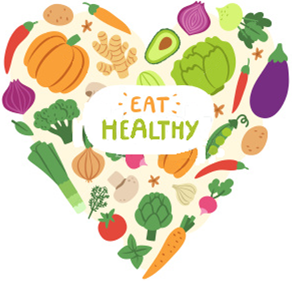Eat Right, Feel Right: Your Diet Affects Your Depression

February 8, 2017
Antidepressants aren’t the only things that can alter your serotonin levels for the better, your eating habits can too. A balanced and healthy diet can boost your mood and energy levels. According to Science Daily, a consistent diet made up of mostly junk-food has been a proven factor of clinical depression. In 2016 BMC Medicine conducted their, “SMILES” experiment, a 12-week-long trial of 166 individuals suffering from moderate to severe depression, who followed a nutritional plan given by a clinical dietician. The study proved that a change of diet in a healthier direction significantly improved several of the patients’ mental health.
If you find you are one of the 2 million teens affected by depression in the U.S. each year, you may want to take another look at your eating habits. According to Columbia University psychiatrist, Drew Ramsey, “Empty calories in a lot of our foods means you aren’t getting the vitamins and minerals needed to burn for fuel and deal with the waste; it taxes your body.”
Try and incorporate more Vitamin C in your diet; foods like spinach, oranges, grapefruits, and peas are essential in producing serotonin. Vitamin E is a great antioxidant that can boost your mood. These vitamins, as well as Omega-3 fatty acids, can be found in oats, seeds, and nuts. A lack of Vitamin D products like milk and eggs have a proven correlation to depression, so try and more of these to your diet.











